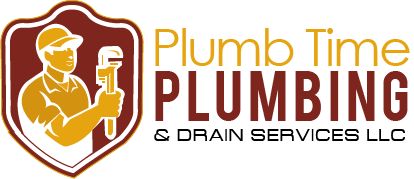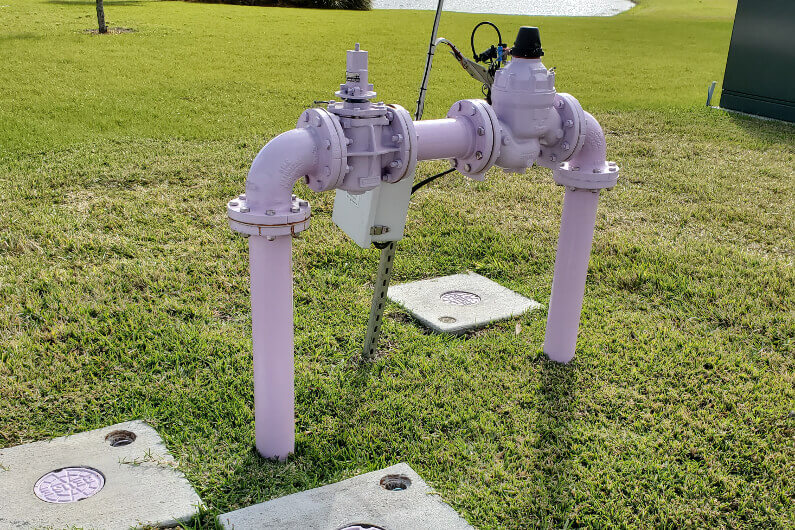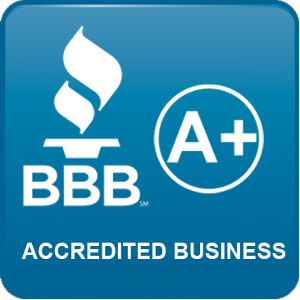The number of public water systems in the U.S. is more than 151,000. On the other hand, privately-owned water systems are about 100,000. These systems ensure that a significant number of Americans get clean water.
While one would argue that the water companies use industrial backflow preventers, it would be best to invest in one at your home. Wastewater around the neighborhood can make the water you get unsafe for domestic use.
Do you want to keep your residential and commercial water supply safe for use? You need to get a backflow prevention device. Read on to know more about backflow prevention and its benefits.
What Is a Backflow Prevention Device?
The water flowing on your taps pass through several connections before getting to your home. Typically, the water moves from the water treatment area, into the main water line. But changes in pressure can make the water flow backward, which is referred to as backflow.
The pressure in the pipes can drop if the water within the structure is excess or when the pipes freeze. Dirty water entering the pipes can be from the ground or sewage. When the pipe sucks the contaminated water, it can flow to your house, leading to consumption of unsafe water.
A backflow preventer is a device that prevents water backflow. Plumbers install the equipment at the valve to prevent non-potable water from flowing back into the primary water supply. This backflow prevention service ensures that water from the public or private suppliers flows in one direction.
While at it, you might also want to clean your drainage to avoid further contamination after installing the backflow preventer. Check out some of the signs that you need your drainage cleaned. A happy drain equals a comfortable home.
Types of Backflow Preventers
There are a variety of backflow prevention devices that you can use at home or in a commercial building. The preventers work differently, but the outcome is similar.
1. Reduced Pressure Zone Device
The RPZD preventer is ideal in preventing high hazard water contaminations. Such backflows can cause severe harm to individuals. Technicians have to check the valve each year to ascertain that it works well.
The reduced pressure zone device has two check valves and a chamber in between to monitor pressure. The preventer has an additional drain to relieve any excess pressure. Consequently, the monitor chamber’s pressure hardly exceeds the pressure of the water supply.
2. Air Gap
The air gap is probably one of the most popular and effective backflow preventers. This system provides a break between the container and the water source. Plumbers usually install the air gaps into residential sinks in bathrooms and sinks.
When you notice signs of a water leak in your bathroom, you can call your plumber and have two issues sorted at a go. Having an air gap preventer installed in your bathroom will be as effective.
3. Atmospheric Vacuum Breaker
The atmospheric vacuum breaker is an elbow-shaped preventer with an internal valve that prevents the backflow of water. The functionality of this system depends on pressure. Therefore, it is practical to install it downstream, ideally on PVC pipes.
4. Dual Check Valves
Dual check valves mostly apply in residential homes to deter backflow resulting from cross-connections. These dual check valves have limited use, and homeowners should be wary of resultant thermal expansion. Your water supplier can guide you on how to go about this device if you have it in your home.
5. Hydrostatic Loop
A hydrostatic loop is when you have pipes in a vertical arrangement. In this setting, the loops need to be more than 33 feet high for optimal performance. This design prevents backflow and siphoning in a water system.
6. Automatic Flood Gate Valve
The flood gate valve is a device that prevents wastewater from getting to the central water system. These tools depend on the air pressure to work automatically. As long as they are under lock, they deter the flow of backwater.
Benefits of Having a Backflow Preventer
A report by the CDC confirmed that more than 1006 people across 19 states in the US had some form of sickness related to water contamination. Contaminated water can spread diseases in a split second due to the interconnection of water systems. Backflows tend to redirect contaminated water in homes.
Fortunately, you can use a backflow prevention device to address the menace. These preventers will save your family from the pangs of contaminated water.
Having backflow preventers is mandatory in most states. Failure to which, you will be liable for fines. In South Carolina, the law demands one to have backflow preventers for high and low hazard cross-connections.
If you’re a law-abiding citizen, you should talk to your plumber to know the ideal backflow preventer for your home or commercial building. The move will save you from unnecessary legal issues.
Investing in a quality backflow preventer is a great way to avoid expensive repairs. Backflows are likely to damage pipes due to the foreign materials flowing through the pipes. If you don’t prevent the damage, the cost of repair might be overwhelmingly high.
What’s even worse, you might have to stay for days without water during the repair period. By installing a backflow prevention device, you don’t have to deal with the inconvenience.
Backflow Testing
You’re probably wondering how you’d know if your water is safe for drinking. Well, water that appears clean is not always clean. That’s why backflow testing is invaluable for any homeowner.
In fact, the law in most of the states mandates one to conduct backflow tests regularly. However, having the test is for your benefit. Besides saving on cost, you’ll manage to avert health hazards before they strike.
Backflow Prevention Will Save Your Family from the Adverse Effects of Contaminated Water
If you haven’t installed a backflow prevention device, you’re putting yourself at risk of health hazards. With the different types of backflow preventers available, you can’t miss one that suits your needs. Your plumber can advise you accordingly before choosing one over another.
Do you need expert plumbers in Columbia, SC? Contact us today for all your plumbing needs.











Do backflow valves also help prevent possible frozen pipes from bursting?